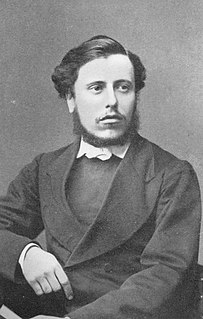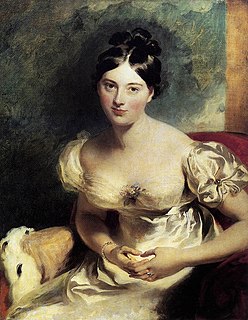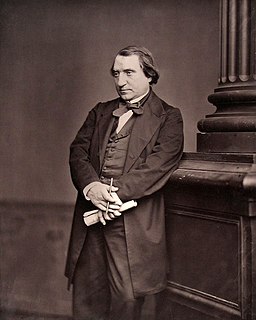A Quote by Sophie Swetchine
Death is the justification of all the ways of the Christian, the last end of all his sacrifices, the touch of the Great Master which completes the picture.
Related Quotes
The love of a dog for his master is notorious; in the agony of death he has been known to caress his master, and everyone has heard of the dog suffering under vivisection, who licked the hand of the operator; this man, unless he had a heart of stone, must have felt remorse to the last hour of his life.
I'm afraid that in the United States of America today the prevailing doctrine of justification is not justification by faith alone. It is not even justification by good works or by a combination of faith and works. The prevailing notion of justification in our culture today is justification by death. All one has to do to be received into the everlasting arms of God is to die.
Let it not be death but completeness. Let love melt into memory and pain into songs. Let the flight through the sky end in the folding of the wings over the nest. Let the last touch of your hands be gentle like the flower of the night. Stand still, O Beautiful End, for a moment, and say your last words in silence. I bow to you and hold up my lamp to light you on your way.
Apart from it, the incarnation and the ministry would lose all their significance, the crucifixion would be but a martyrdom, and the cross a symbol of the victory of death over life. By the Resurrection it was that the Crucified One was "declared to be the Son of God with power," the great truth on which the Christian's faith is founded, and to which his hope is anchored. That Christ died for our sins is the Gospel of the Christian religion regarded as a human cult. The Gospel of Christianity goes on to declare "That He rose again the third day according to the Scriptures"
We can think of Lent as a time to eradicate evil or cultivate virtue, a time to pull up weeds or to plant good seeds. Which is better is clear, for the Christian ideal is always positive rather than negative. A person is great not by the ferocity of his hatred of evil, but by the intensity of his love for God. Asceticism and mortification are not the ends of a Christian life; they are only the means. The end is charity. Penance merely makes an opening in our ego in which the Light of God can pour. As we deflate ourselves, God fills us. And it is God’s arrival that is the important event.
It is evident, indeed, that such a doctrine, taken by itself in a literal manner, had no future. The world, in continuing to exist, caused it to crumble. One generation of man at the most was the limit of its endurance. The faith of the first Christian generation is intelligible, but the faith of the second generation is no longer so. After the death of John, or of the last survivor, whoever he might be, of the group which had seen the master, the word of Jesus was convicted of falsehood.
This soldier, I realized, must have had friends at home and in his regiment; yet he lay there deserted by all except his dog. I looked on, unmoved, at battles which decided the future of nations. Tearless, I had given orders which brought death to thousands. Yet here I was stirred, profoundly stirred, stirred to tears. And by what? By the grief of one dog. Napoleon Bonaparte, on finding a dog beside the body of his dead master, licking his face and howling, on a moonlit field after a battle. Napoleon was haunted by this scene until his own death.



































